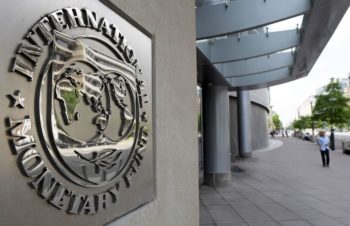
International Monetary Fund (IMF) Managing Director Christine Lagarde said on Wednesday global economic recovery was gaining momentum.
Lagarde said ahead of next week’s IMF and World Bank spring meetings in Washington that the growth could be cut off by a “sword of protectionism’’ now threatening global trade.
She argued for countries to use fiscal and monetary policy to boost demand and structural reforms to make economies more efficient to sustain the recovery.
She said for the first time in years, the global economy “has a spring in its step’’.
“The good news is that, after six years of disappointing growth, the world economy is gaining momentum as a cyclical recovery holds out the promise of more jobs, higher incomes and greater prosperity going forward.
“The prospects are better for advanced economies, where manufacturing activity is stronger, as well as for emerging and developing economies, which will contribute more than three quarters of global GDP growth this year.
“Higher oil and commodity prices have aided many commodity exporters, but their revenues will stay well below the boom years.
“At the same time, there are clear downside risks: political uncertainty, including in Europe, the sword of protectionism hanging over global trade, and tighter global financial conditions that could trigger disruptive capital outflows from emerging and developing economies,’’ Lagarde said.
She said restricting trade would be a “self-inflicted wound’’ that would disrupt supply chains and raise prices for components and consumer goods, hitting the poor hardest.
She also voiced concern about lagging productivity growth and called for more investments in research.
According to her, as IMF prepares to release new growth estimates on April 18, trade promotes efficiency and innovation.
She cited forthcoming IMF research that estimated that China’s integration into the global trading system accounted for as much as 10 per cent of advanced economies’ overall productivity gains between the mid-1990s and the mid-2000s.
Lagarde said governments also needed to find better ways to aid workers who were displaced by technology and trade flows.
“There is no magic formula. But we do know that greater emphasis on retraining and vocational training, job search assistance, and relocation support can help those affected by labour market dislocations,” Lagarde said.